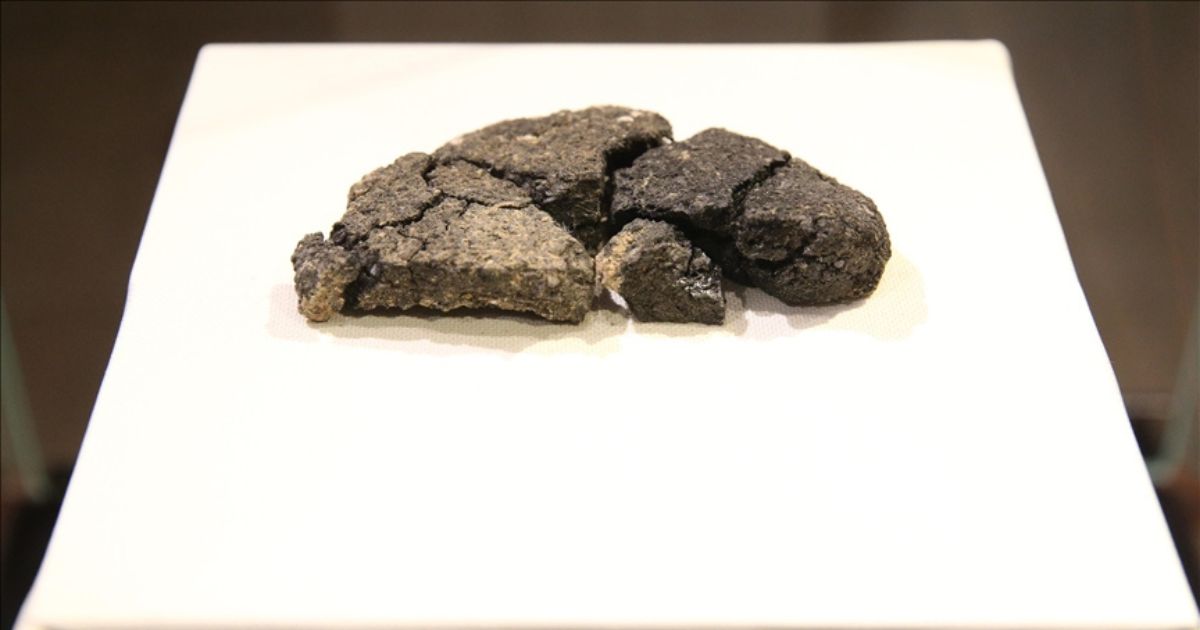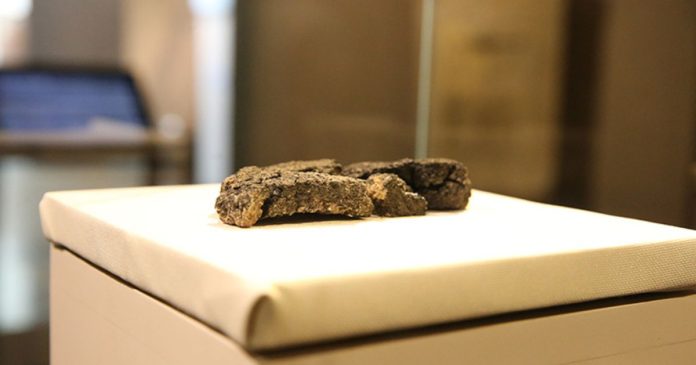Archaeologists made a remarkable discovery at the Küllüoba Mound in Eskişehir’s Seyitgazi district, Türkiye. They unearthed a 5,000-year-old loaf of bread. The team introduced this important find to the public during International Museum Day at the ETİ Archaeology Museum on May 21, 2025.
The Küllüoba excavation, ongoing since 1996, has been instrumental in shedding light on the Early Bronze Age settlements in Anatolia.Professor Dr. Murat Türkteki from Bilecik Şeyh Edebali University’s Department of Archaeology led the excavation team. They discovered the ancient bread near the threshold of a rear room in a buried house within the mound. The bread, about 12.5 centimeters wide and 2.5 centimeters thick, had a tubular shape, suggesting it was leavened and baked. Notably, this is the first known instance of such a well-preserved, processed bread from this era.

Laboratory Findings Reveal Ancient Bread’s Plant-Based Ingredients
Laboratory analyses found phytoliths—tiny silica structures from plant tissues—on the bread’s surface. This offers insight into the plant-based ingredients used in making the bread. These findings offer a unique glimpse into the dietary practices and culinary techniques of ancient Anatolian civilizations.
Eskişehir Governor Hüseyin Aksoy highlighted the region’s rich history and stressed the value of such discoveries in preserving cultural heritage. He added that ongoing excavations at five archaeological sites in the province continue to reveal artifacts linking modern society to its ancient past.
Eskişehir Metropolitan Municipality Mayor Ayşe Ünlüce expressed enthusiasm over the discovery. She announced that a modern reproduction of the ancient bread, made using ingredients identified through lab analyses, will be available at local producer markets starting tomorrow. This initiative connects historical findings with contemporary culture, allowing the public to engage with the region’s rich archaeological heritage.

